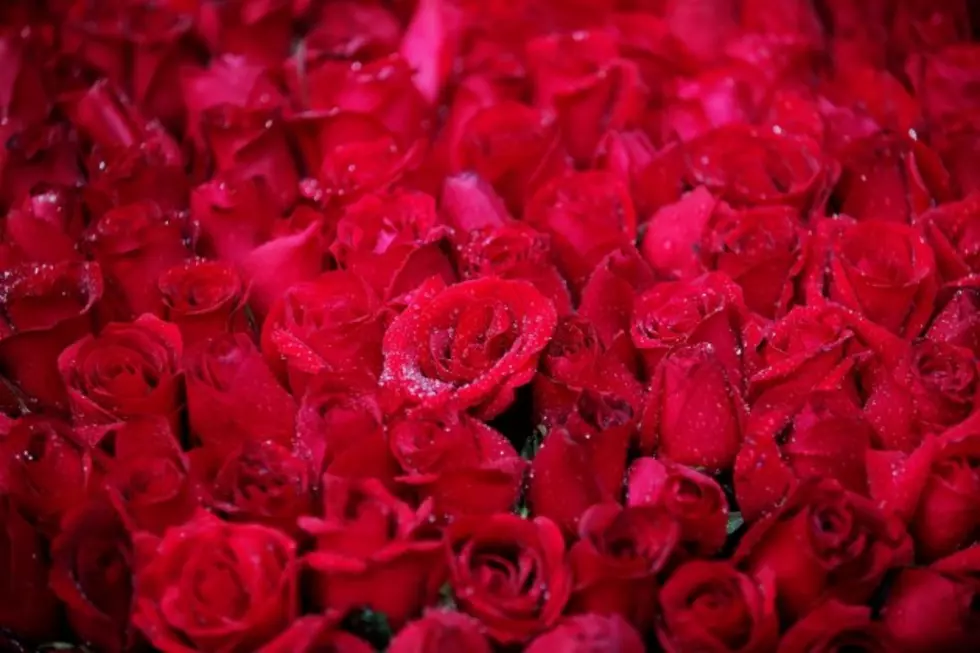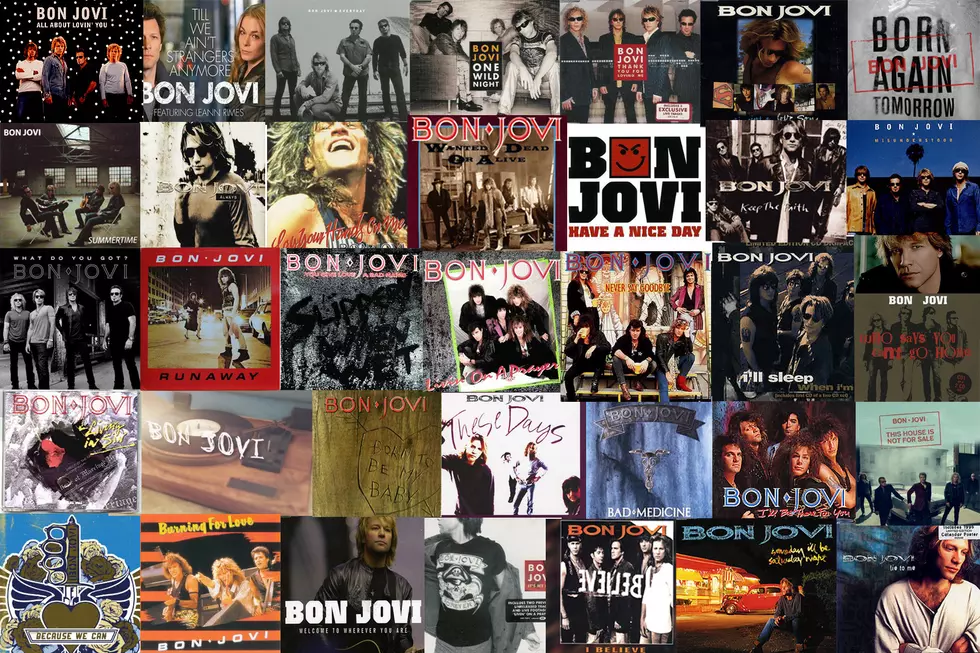
Top 10 Flowers Songs
The rock stars below can’t be depended upon to actually bring anyone flowers, even if they did record the Top 10 Flowers Songs. For as long as people have been writing songs, they’ve been using flowers as metaphors, props and symbols for life, love and death. The assorted songs below include varieties of wry and romantic, wistful and philosophical. Although some of these people are pushing up daisies now, but none were shrinking violets when it came to leading us down the garden path. Enjoy the bouquet.
- 10
‘Hyacinth House’
The DoorsFrom: ‘L.A. Woman’ (1971)
Kicking off our list of the Top 10 Flowers Songs, "Hyacinth House" likely refers to Doors guitarist Robby Krieger’s beach house, where hyacinths feature in the garden and Jim Morrison wrote the lyrics to this song. Because of Morrison’s desperate lyrics, some have theorized that the mention of hyacinths is a reference to a Greek legend. Hyacinthus was beloved by Apollo, who accidentally killed him with a discus. Overcome with sadness, Apollo refused to let the boy go to Hades, then used his blood to create the hyacinth flower. The parallel makes sense. Throughout the tune, Morrison croons, “I need a brand new friend.” It’s a great reminder to always be careful where you put your discus.
- 9
‘(Listen to the) Flower People’
Spinal TapFrom: Single (1967)
Somewhere in between changing their name from the Thamesmen and releasing Smell the Glove, Spinal Tap had their first big hit by embracing a psychedelic folk sound. Not only were Tap able to tour the world (and elsewhere) on "(Listen to the) Flower People," they confirmed the existence of the flower people and that these people should be listened to. Plus, countless up-and-comers were influenced by Tap’s style – from Nigel Tufnel’s Mozart licks to Derek Small’s pitch-perfect shushing. "Flower People" surely inspired another flower song, Kiss’ "Under the Rose' – although that Music from ‘The Elder’ cut may have been a parody.
- 8
‘For the Roses’
Joni MitchellFrom: ‘For the Roses’ (1972)
The title track on Joni Mitchell’s 1972 LP takes a look at the harsh spotlight of fame and the artist’s role as a cog in a big money-making machine. The roses mentioned in the song title, but never in the lyrics, symbolize the adulation that sits uncomfortably with Mitchell, who had run back north to Canada, disenfranchised with the consequences of her commercial and critical success. “Just when you’re getting a taste for worship / They start bringing out the hammers and the boards and the nails.” While some would tell you to stop and smell the roses, Joni might advise you to get away as fast as you can.
- 7
‘Every Rose Has its Thorn’
PoisonFrom: ‘Open Up and Say... Ahh!’ (1988)
"Every Rose Has its Thorn" is Poison’s sole No. 1 hit, a monster ballad writ large, and the song Bret Michaels would sing on Rock of Love when he wanted to seem sensitive after a long day of watching women mud wrestle for his attention. The story goes that Michaels wrote the lumbering, country-spiked tune in a laundromat, after he called his stripper girlfriend and heard a male voice in the background. He later said that the rose symbolized Poison’s growing fame and the thorn stood for how his band’s success was killing his relationship (or maybe it ended because she was a stripper) Michaels isn’t a cowboy, but this sure is his sad, sad song.
- 6
‘(Nothing but) Flowers’
Talking HeadsFrom: ‘Naked’ (1988)
This entry in the Top 10 Flowers Songs takes a back-door approach to environmentalism. In "(Nothing but) Flowers," Talking Heads frontman David Byrne longs for “honky tonks, Dairy Queens and 7-Elevens” in a world where fields and trees have supplanted humanity’s precious real estate. In an era where (too) many college rockers were writing (too) earnest songs about saving the earth, the upside-down treatment was a breath of fresh air. Clever as it is, "(Nothing but) Flowers" also has the ring of truth. It’s easy to pay lip service to recycling and whatever, but how many people would flip out if their Pizza Hut (or Starbucks or grocery store) was replaced by a field of daisies? “Don’t leave me stranded here / I can’t get used to this lifestyle,” Byrne moans.
- 5
‘Bed of Roses’
Bon JoviFrom: ‘Keep the Faith’ (1992)
This huge hit ballad exemplified Bon Jovi’s grown-up sound in the ’90s. Sure there are still extended guitar solos from Richie Sambora and the whole thing clocks in at a pretty epic 6:38, but the chintzy trappings of “hair metal” have been left behind. It’s part of the reason that Bon Jovi was able to survive grunge. Another part is that Jon Bon Jovi just wrote better songs than most of his contemporaries. He thought up this one when enduring a hangover one morning while missing his wife. Sure, it’s a bit overwrought for a “mature” love song (“I want to be just as close as the Holy Ghost is”?), but that’s the sort of histrionics you expect from a song that contrasts a bed of roses with a bed of nails.
- 4
‘Dead Flowers’
The Rolling StonesFrom: ‘Sticky Fingers’ (1971)
The Rolling Stones are no strangers to the subject matter of flowers. Not only did they name a 1967 U.S. compilation Flowers and record a song named "Dandelion," Keith Richards even named his daughter Dandelion (although she goes by Angela now). "Dead Flowers" was one of the Stones’ many forays into country music, with singer Mick Jagger playing it for laughs by adding a pronounced twang to his voice. The song is less about flowers than it is about drugs (as if the line “I’ll be in my basement room with a needle and a spoon” didn’t make that clear). The title could be taken as a reference to heroin, because the drug is derived from the poppy. Back in the ’70s, Keef would never refuse a package of “dead flowers,” although sending them by mail might not have been the wisest choice.
- 3
‘Wildflowers’
Tom PettyFrom: ‘Wildflowers’ (1994)
As the unassuming introduction to the stripped-back Wildflowers record, the title track sets the stage for what is to come on Tom Petty’s best album. This is music that still lets the sunlight in – maybe too much, so that it rustles with a faded, lived-in glory. The kick-off song embodies the album’s melancholy spirit, as Tom wishes his subject freedom “among the wildflowers” and later says she/he belongs “close to me.” It’s a love song, sure, but is it a romantic love song? Could be. Or maybe it’s a father’s benediction to his grown-up child, sending his kid out into the wild and hoping for the best.
- 2
‘Roisin Dubh (Black Rose): A Rock Legend’
Thin LizzyFrom: ‘Black Rose: A Rock Legend’ (1979)
The seven-minute epic that closes Thin Lizzy’s Black Rose: A Rock Legend album is Phil Lynott’s supreme tribute to his homeland of Ireland. Lynott, with the help of guitar master Gary Moore, weaves traditional folk songs such as "Danny Boy" and "Shenandoah" in between his own lyrics about the spirit of his country. Lynott namechecks the Irish political song "Roisin Dubh," in which a black rose represents bloodied but unbowed Ireland, as well as Irish cultural heroes from James Joyce to Van Morrison. The sweeping grandeur is made all the more electric by a titanic solo from Moore. Talk about coming up roses…
- 1
‘Sugar Magnolia’
The Grateful DeadFrom: ‘American Beauty’ (1970)
Crowning the Top 10 Flower Songs is this sunshine daydream of a ditty, written by guitarist/vocalist Bob Weir and the Grateful Dead’s legendary “non-performing member,” lyricist Robert Hunter. The "Sugar Magnolia" in the tune supposedly refers to Weir’s live-in girlfriend at the time. In addition to frequent mentions of the title flower, the tune is otherwise a bit plant life-obsessed, with mentions of blossoms, roses, willows and rushes. As sweet as the flower it references, ‘Sugar Magnolia’ was the second-most-often played song during the Dead’s concert career. The term “sunshine daydream,” used in the coda section, also became the title to a 1972 Grateful Dead concert film.
- BONUS
You Think You Know the Rolling Stones?
More From Ultimate Classic Rock









